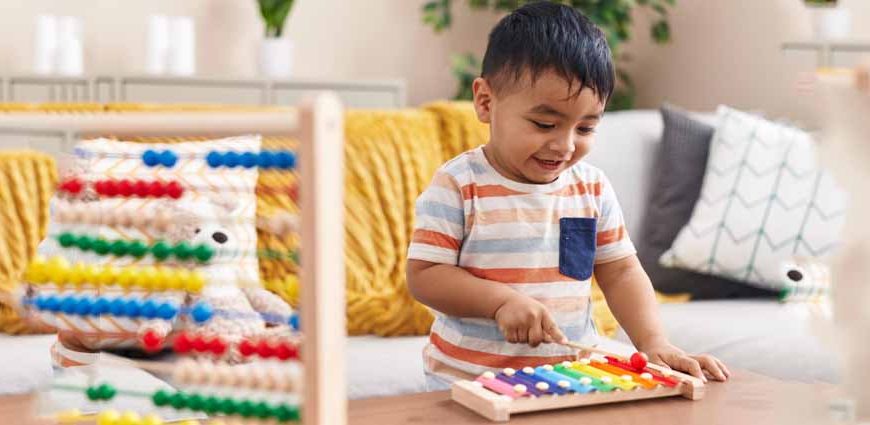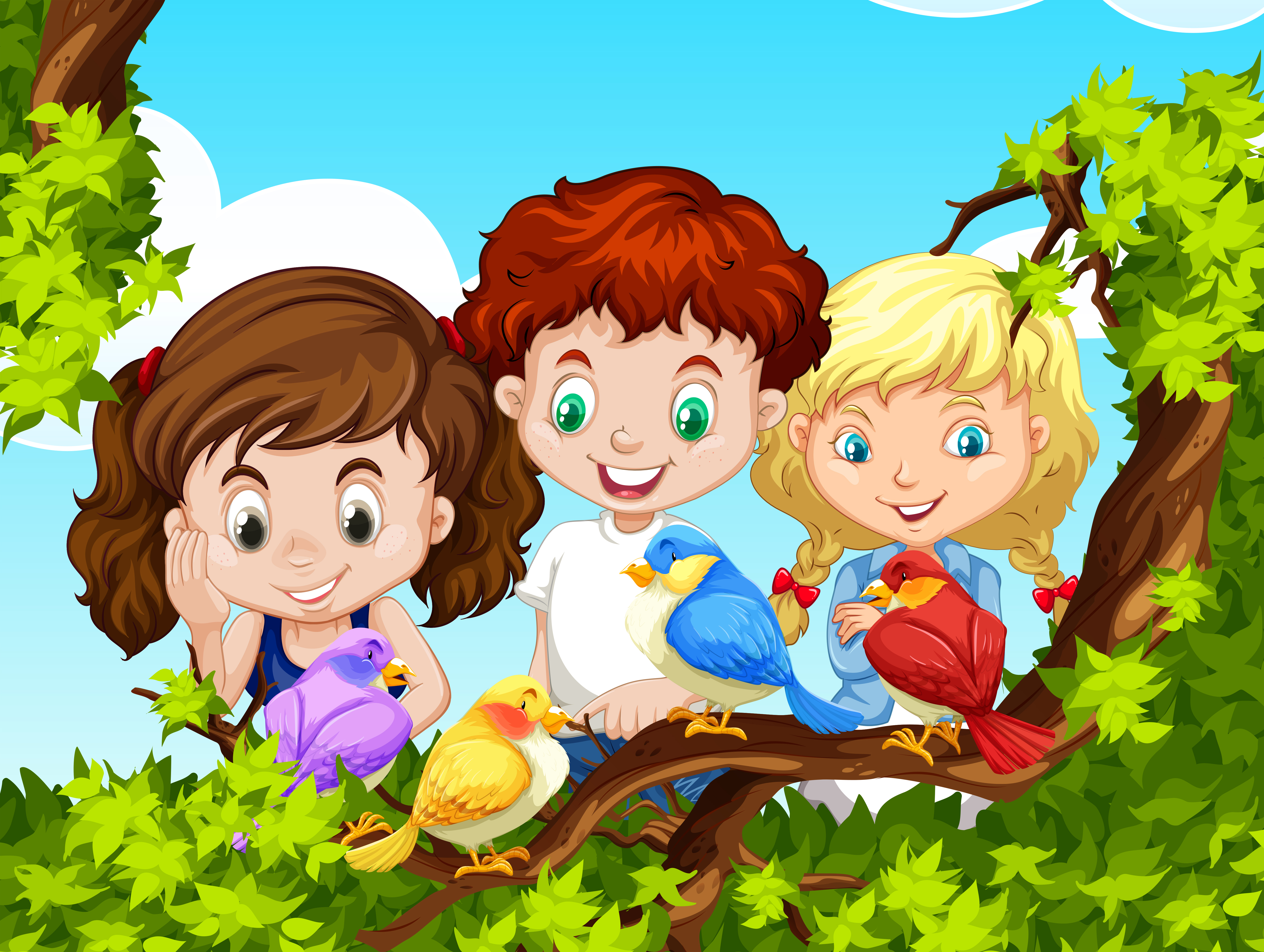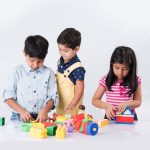“Pre-primary education gives children a solid foundation upon which all learning depends on, making every stage of education that follows more efficient and more productive.”
– UNICEF
Table of Contents
1. What is the Purpose of Early Child Education?
2. Early Childhood Education
3. Benefits of Early Childhood Education
4. The “Kindergarten System”
5. Adding Fun to Learning
6. Learning and Evolving
7. Conclusion
Education is a lifelong process that begins as soon as we are born. Learning occurs either actively or passively, and we can learn either by listening, seeing or doing. Let us first understand how the brain develops before we get into the importance and benefits of early childhood education.
Fun fact on early education for kids- It is known that 90% of brain development occurs within the first 3 years of a child’s life. It does continue after that until the age of 5yrs, and by age 6yrs, the brain is already 95% of its adult size. However, the thinking part of the brain, the grey matter, continues to develop and thicken as the synapses make extra connections based on the stimulus and input it gets from the outside world.
In the past few decades, researchers and scientists have realised how fast the child’s brain develops and how quickly and easily children absorb information from their environment. During this time, the children are rapidly developing their social skills, language skills, gross and fine motor skills, cognitive skills, and even emotional skills. Their minds are like sponges absorbing knowledge that they will use later on. All this has made the ages 0-5 years ideal for human development. The exposure and experiences we give them now will last their entire lifetime.
Did you know that early education for children sets the basis for learning skills and lifelong success?
What is the Purpose of Early Child Education?
1. The main purpose of early childhood education in India is to encourage the child’s overall development in terms of cognitive, social, emotional, and physical fields, building a strong base for their future learning and development.
2. Early child education prepares children with basic skills required in school like reading, counting numbers, and solving problems. These skills are taught as per age-appropriate curriculum and through activities centred around play-based learning.
3. Early childhood education also centralises on developing crucial life skills, such as talking, working with a team, and critical thinking, that are important for the overall success of kids in the future.
4. Early childhood education encourages social equity and inclusion by giving access to good quality education to all children from various socio-economic backgrounds. This decreases the educational disparities that are persistent in the country.
Early Childhood Education
Early childhood education, or ECE, is the type of child education dedicated to children below the age of 8. It comprises both formal and informal methods of teaching. This area of early education originated in Europe and has gained acceptance all over, with many countries accepting it as a norm.
The initial 2 years of the child’s life are spent at home, with parents and family members playing an important role in the child’s understanding of themselves and their surroundings. Home is the first learning environment the child is exposed to, where the parents can shower the child with much love and attention. In contrast, research has proven that as the child grows older, they stand to benefit much more from the experience of teachers within an early education program.
Benefits of Early Childhood Education
These are some of the main benefits of early childhood education programs in India:
1. Children are supported by professional tutors who comprehend their developmental needs and guide them accordingly.
2. Teachers are aware of the developmental milestones kids need to achieve. They can identify strengths, weaknesses and opportunities of the kids to grow at a young age.
3. The tutors have the resources and training to provide an intellectually stimulating environment for the children
4. The programs offered in early child educational institutions build cognitive, social, emotional, gross and fine motor skills of kids.
5. Children gain confidence levels through exposure to a wide spectrum of opportunities
6. Early education centres encourage overall development of your children in a nurturing environment.
Find a Eurokids center near you and observe the ease at which children learn and have fun at the same time.
The “Kindergarten System”
The term kindergarten means “children’s garden” or “garden of children” ; it was first coined by Fredrich Froebel in the 18th century, in which he compares children to flowers that needed constant nurture and care. The kindergarten centres were designed to be safe places for children to keep when both parents had to work and make the transition from home to school easier. It is mainly for these reasons that these centres became so popular and laid the foundation for the early childhood education centres that we know today.
These early education centres still perform the same function of providing a safe place for parents to leave their children as they go to work and ease the transition from home to school. However, with an increased understanding of this field and technological advancement, these centres have become more structured and have better-trained professionals and age-appropriate toys and equipment.
Adding Fun to Learning
It is a known fact that children love to play and are happiest when doing so. However, the opposite is true when children have to learn. How can we make learning fun? Or learn how we can learn something while having fun? The successful amalgamation of the ‘fun element’ and the ‘learning element’ makes early childhood education very popular.
By consciously trying to add a fun element into learning or a learning element while having fun, the children’s minds are stimulated and then engage in the activity for longer. Adding colour, textures, and even music goes a long way in sustaining the child’s interest and concentration while making learning fun. Therefore, learning with fun is one of the important benefits of early education.
As parents, we always strive to give our children the best, but we can’t know the best way to give it to them. More than buying the most expensive equipment or toy is required. It is not even possible for parents to be around their children all the time, have all the knowledge required for child development or even have enough safe space required for the child to roam freely and explore by themselves.
All this and more is readily available at early childhood education centres like Euro kids, where the importance of child education is taken seriously. The equipment and materials are specifically chosen depending on the developmental needs of various age groups. There are trained professionals around to teach and guide your child into successfully achieving their milestones. There are other children of a similar age to interact and play with. The activities are well throughout and designed to develop specific skills in a child. These centres aim for the holistic growth of the child.
Learning and Evolving
The importance of early education can be witnessed in the learning and evolving habits of your kids. As years go by, we have seen a tremendous change in the approach to education, particularly early childhood education. The cramped benches in small classrooms have given way to larger spacious classrooms with minimal furniture and ample space for the children to move about freely as they do their activities. The children can do their activities standing, sitting at a table, or on a carpet.
The focus of teaching, too, has evolved from the 3 r’s – reading, (w) writing and (a) arithmetic to holistic development, teaching the child life skills, to be self-reliant and independent, giving children opportunities to interact, speak out, think, solve problems and develop their thoughts.
The needs of the children too have changed, being exposed to so much technology- they need time to process what they are seeing, need someone to answer their questions all the time – they do have a lot of questions, but parents may not have the time to answer them with other things taking precedence. Families are smaller these days with just 1 child, so there is no other child to play with or interact with. With nuclear families, there are no grandparents around to tell them stories or explain things to them patiently. It is mostly for these reasons that schools have evolved to include children’s emotional and social development.
A day or week in any early childhood education centre like EuroKids is well planned and structured. The daily schedules include activities that give the children opportunities to learn, explore and even move about and have fun. Along with age-appropriate materials and equipment, the teaching aids include puppets, flashcards, 3D models, hands-on experiments, real-life experiences, field trips, music, singing, art, crafts, outdoor play, water play, sand play, and so much more. They are also taught concepts and given numerous opportunities to practise what they have learnt, all within a safe and comfortable environment, with adults around to cater to their needs.
Conclusion
The importance of early childhood education lies not in churning out individuals all good in Math or English or other particular skill sets but in understanding that each child is unique, they come from different backgrounds and different experiences, each has their likes and dislikes, and each of them learns at a different pace. Early childhood education recognizes that each child is full of potential, is willing to learn, and has no fixed way of teaching them. Education and teaching is a continuously evolving system that embraces the changes in our daily lives. In this article, we have covered the importance of early education. Early childhood education teaches us the importance of recognizing each child as an individual, an integral part of a whole. As an individual who will one day grow up to be a productive member of society.
For informative and accurate articles on all things related to your new born-toddler’s development, growth, health and nutrition, follow EuroKids Blogs and do check out our nationally recognized preschools – EuroKids for the first step in your kid’s educational journey!












